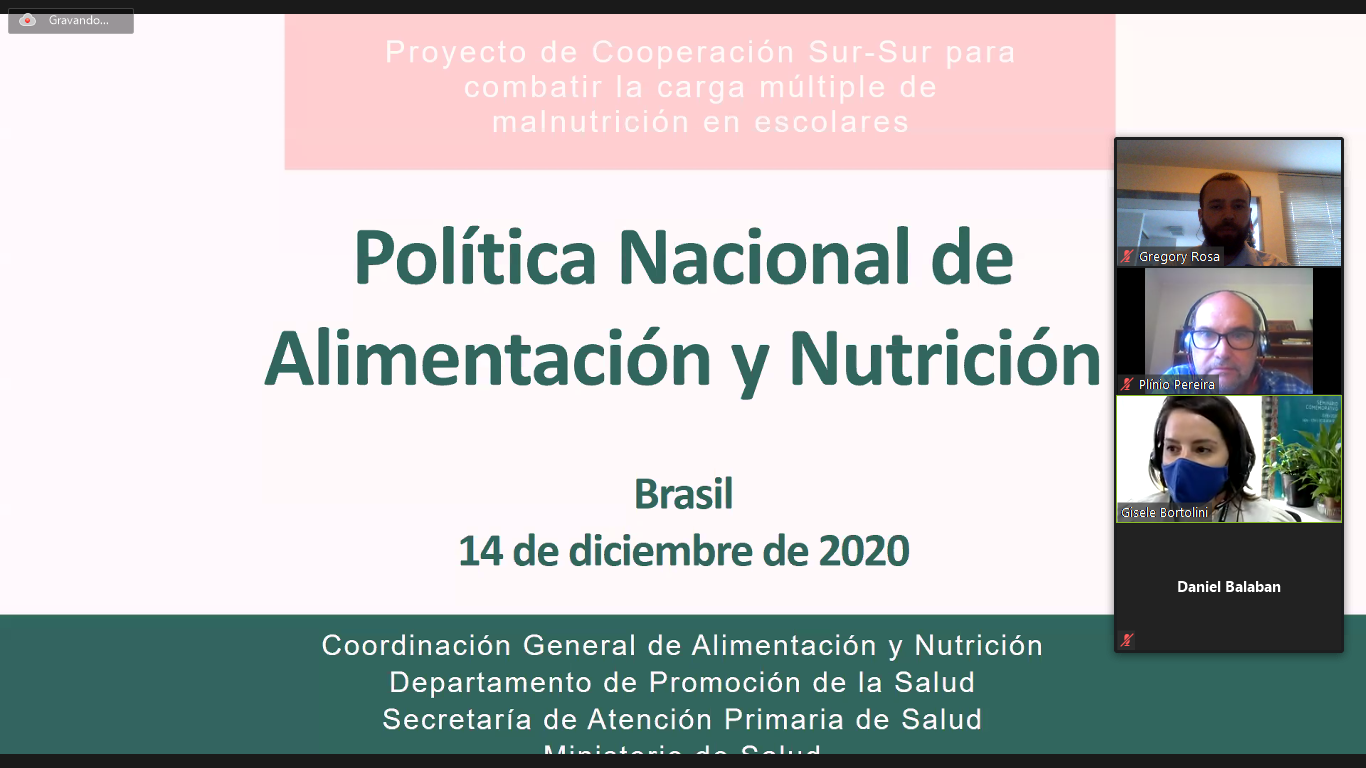
On December 14th and 15th, the WFP Centre of Excellence Against Hunger Brazil organized the first International Seminar as part of the South-South Cooperation Project to tackle the Multiple Burden of Malnutrition in School-aged Children, or the Nurture the Future project. The event was organized in partnership with the Brazilian Ministry of Health and the Brazilian Cooperation Agency (ABC), which are WFP partners in this project, and also had the participation of technical teams from Brazil, Colombia and Peru.
The seminar’s purpose was to present and discuss food and nutrition policies focused on the health sector in the three countries so as to provide inputs for developing the next products. These products will include designing comparative analyses on how policies are structured within themes discussed in each country, bringing perspectives on how to improve feeding, nutrition and health conditions for their populations.
In their presentation, the Brazilian team highlighted that among the biggest challenges related to the multiple burden of malnutrition – that is, the coexistence of malnutrition and micronutrient deficiencies combined with overweight and obesity – are the rising obesity rates in the country. However, Brazil has already been developing actions of food and nutrition vigilance to fight these problems for decades and, next year, the government will launch the National Plan against Childhood Obesity, which aims to decrease these numbers and promote welcoming environments for health through actions of food and nutrition education, incentive to physical activities, among others.
Overweight rates in Colombia are also rising, especially among children and the rural population. In their presentation, the country also highlighted vitamin D deficiency in the population. On the other hand, Colombia has advanced on actions to regulate food and presented a strategy to reduce salt and sodium consumption, which brings a multi-sectoral approach to fight the problem with effective actions to improve food and nutrition quality nationally.
The Peruvian Ministry of Health mentioned that besides having undesirable numbers of overweight and obesity, their biggest challenge still is the high prevalence of anaemia, a huge public health problem in the country. Since 2013, the country has the Law of Promotion of Healthy Eating to face these challenges in a coordinated and effective manner. It is also a regional example of front label regulation. This national initiative presents concrete results such as a national decrease in consumption of sugary drinks.
Despite the COVID-19 pandemic and its unprecedented impacts with profound social and economic consequences, including the compromise of food and nutrition security in the entire world and especially in Latin America and the Caribbean, the Nurture the Future project proposes to develop evidence and promote the exchange of successful experiences between Brazil and other countries that also face the rising problem of the multiple burden of malnutrition. Learn more >>>




